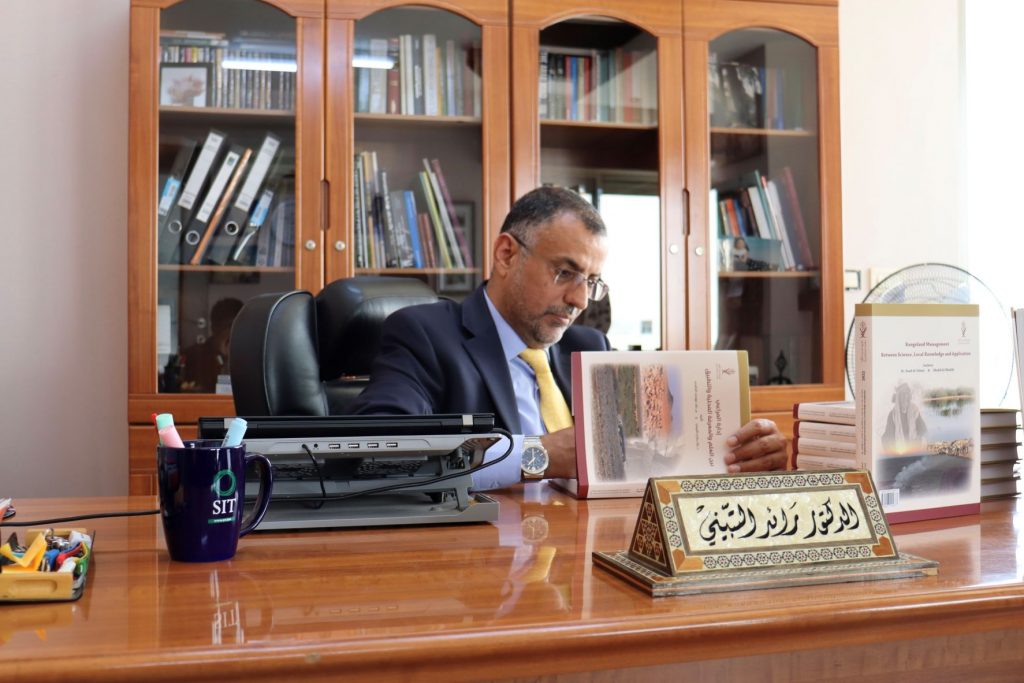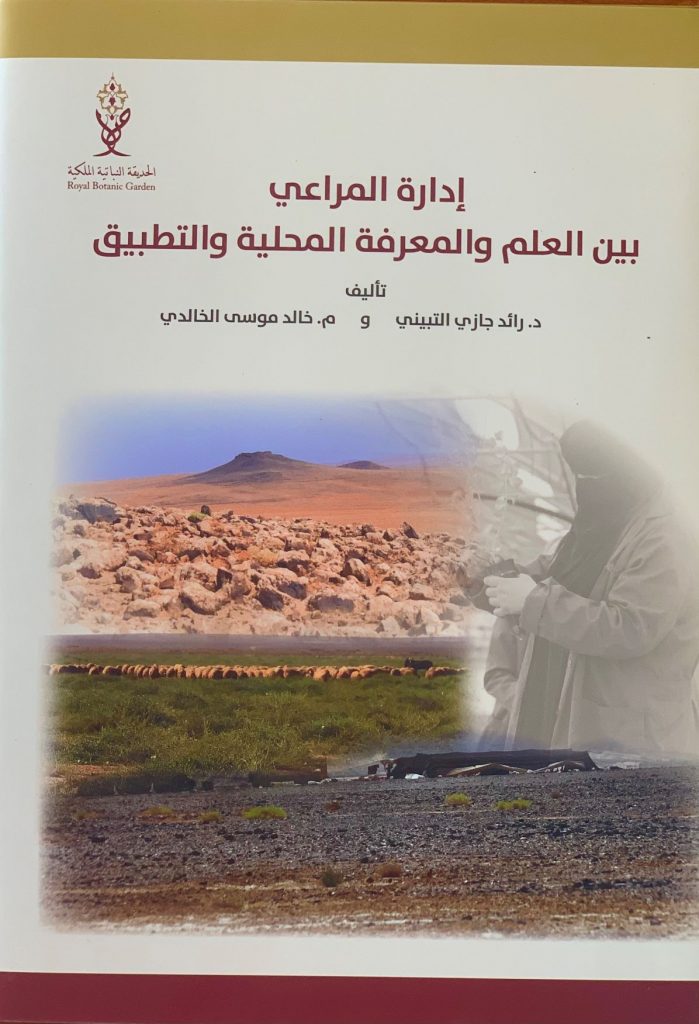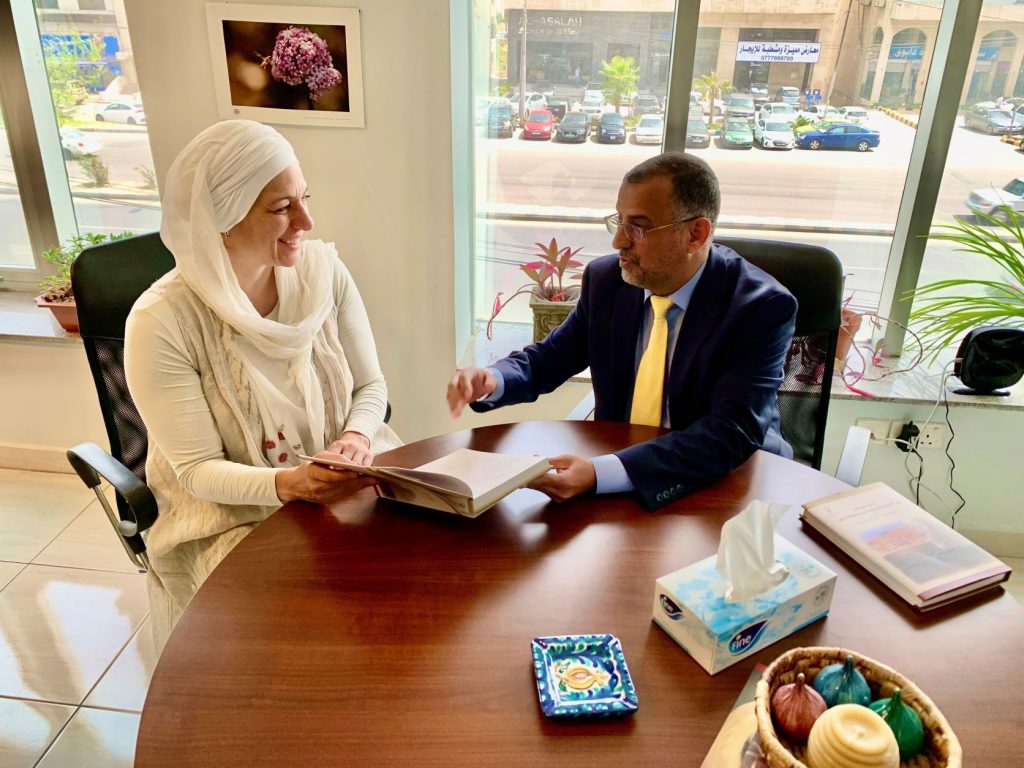New book incorporates science, local knowledge in Jordan rangeland management
Announcement Date: May 24, 2022

SIT Professor Dr. Raed al Tabini has co-written a new book that addresses natural resource management from the perspectives of both science and centuries-old local knowledge.

Rangeland Management Between Science, Local Knowledge, and Application was published last month by the Royal Botanic Garden in Jordan. Dr. al Tabini presented a copy of the book to Princess Basma Bint Ali, who is a founder of the Royal Botanic Garden.
This book presents a scientific model for arid land development and sustainability that is based on three research paths: the science used in rangeland management; the local knowledge of pastoral communities; and the most important methods used to preserve and sustain resources.
"It is important to document the local knowledge that is disappearing and is not written somewhere," says Dr. al Tabini, who has 30 years experience in the field. "Local knowledge was instrumental in sustaining the natural resources that we now enjoy, and it is also important to provide a new approach for scientists to recognize that what they are doing may have been done locally for centuries."
The book, which is published in Arabic with a 12-page English abstract, contains information relevant for students and researchers from various disciplines. It is considered among the first, if not the first, book in the Middle East and North Africa to incorporates both scientific and local knowledge to address natural resource management.

Local knowledge has almost become extinct and is little used in recent times due to a variety of conditions and social changes, says Dr. al Tabini. "Yet, it has been the driving force for sustaining natural resources and preserving nature." The book includes, for example, herbal and traditional medicine practices used by nomadic peoples. It also addresses local communities' response to climate change.
It is Dr. al Tabini's second book. His first, published by Lambert Academic Publishing, focuses on the effects of sheep grazing on Jordanian rangeland.
